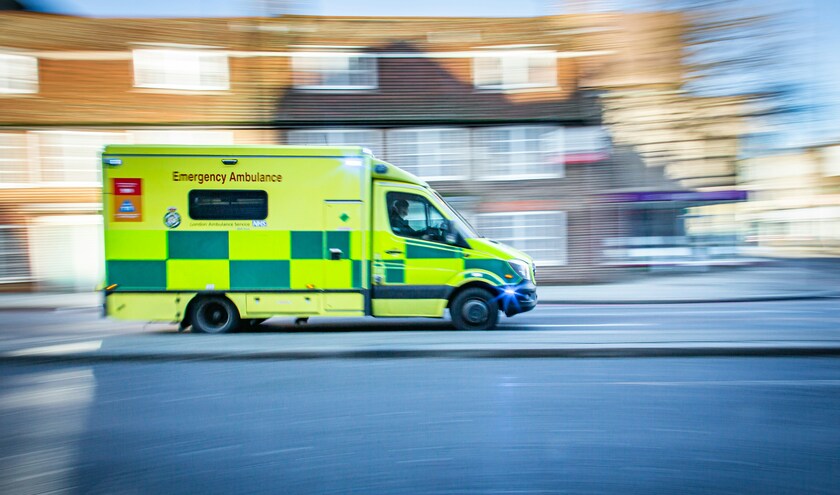Jason Killens, AACE chair and chief executive of the Welsh Ambulance Services University NHS Trust, has written to the ministers responsible for ambulance services in England, Scotland, Wales and Northern Ireland seeking to explore what further national policy interventions could be developed to help combat the growing number of violent assaults against UK ambulance people.
It comes as new AACE data shows UK ambulance services now have the highest rate of reported incidents of violence, aggression and abuse directed at their people – with 22,536 incidents across the 14 UK ambulance services in the 2024-25 financial year, an increase of almost 15% on the previous year.
This means that every single day, at least 62 ambulance people will be abused or attacked – almost three an hour – with reported incidents including kicking, punching, slapping, head-butting, spitting, verbal abuse and sexual assault, and ranging from common assault to significant serious attacks involving a multitude of weapons.
The data reveals that female ambulance workers are three times more likely than the NHS average to be subject to assault at work, and male ambulance workers twice the NHS average.
In addition, the AACE data shows that the summer months were when the most incidents of violence and aggression were reported. Summer 2024 saw the highest number of incidents on record, with 6,093 reported. Alcohol is the most prominent factor in assaults against ambulance staff, followed by drugs and people in mental health crisis. Race and sexuality have also increased as exacerbating factors in these assaults.
As a result, AACE is using spring – when incidents traditionally start to escalate – as an opportunity to highlight the impact of this abuse on the everyday lives of ambulance staff, while encouraging the small minority of people who might commit these offences to have greater respect for the people who are trying to help them when they are most in need.
Killens said: ‘These figures are truly shocking and reflect a pattern of increased violence, aggression and abuse directed at hard-working ambulance people who are there to help people in their times of greatest need. Frontline staff as well as call handlers are affected by this horrendous abuse and this unacceptable behaviour has a major long-term impact on the health and wellbeing of ambulance people who are simply trying to do their jobs and help save lives.
‘This situation is now so serious that we are seeking to engage with UK health ministers at the highest level to explore new interventions that could help deter potential perpetrators of these attacks. We would also underline again that it is vital that the judiciary uses all available legislation to ensure appropriate sentences are handed out consistently to those found guilty of committing these horrific crimes against our workforce.'
Anna Parry, managing director of AACE, added: ‘These new figures are beyond worrying and underline the upsetting fact that ambulance employees face the very real possibility of being subject to violence or abuse each time they start a shift, which is just unacceptable. This can have a significant and lasting impact on wellbeing and can sometimes even lead to people leaving the ambulance service.
‘Our ongoing #WorkWithoutFear campaign is shining a light on this alarming issue and raising awareness of the negative impact of this behaviour on our people, while a significant amount of work is ongoing within ambulance services to help better protect our workforce.'
NHS ambulance services are undertaking several initiatives, alongside the #WorkWithoutFear campaign, to try and effect behavioural change among those who might carry out these assaults or become abusive, while providing employees with as much support as possible to reduce the incidence of assaults.
This includes:
- Dedicated violence prevention teams established within each NHS ambulance service.
- Body-worn video cameras have been introduced to all English NHS ambulance services.
- The establishment of a centrally coordinated violence dataset that enables each ambulance service to report the type and frequency of assaults in a more consistent way, giving a greater foundation and better understanding of the prevalence and reasons behind violence and aggression directed at ambulance people.
- A successful ‘restrictive interventions' training programme giving ambulance people safer ways to protect themselves and patients in potentially volatile situations.
- Counselling and other forms of talking therapy and support for employees who have been subjected to violence and aggression; the sector continues to work hard to find new and innovative ways to provide better post-incident support for its people.
- The public are being asked to pledge their support for the AACE anti-violence campaign by using and sharing #WorkWithoutFear on social media and by visiting www.aace.org.uk/vaa to view films about some of those affected.
Reaction
Rory Deighton, acute director at the NHS Confederation, said: ‘The safety of all NHS staff is non-negotiable. Everyone should be able to go to work without the fear that they might be attacked or assaulted while doing their job.
'After one of the toughest winters for the ambulance service we've seen in years, we cannot have a summer with yet another spike in cases of violence faced by crews when they are responding to and helping those most in need in life-threatening emergencies every single day.'
Unison national ambulance officer, Sharan Bandesha, said: ‘Rising pressure on the health service has created a toxic environment where violence and abuse are becoming far too common. This is unacceptable. Staff are being left traumatised, injured and even forced out of roles which worsens the workforce crisis.
‘Trusts must take urgent action to prevent violence, ensure proper reporting systems are in place and support those affected. NHS workers deserve to care for patients without fearing for their own safety.'



